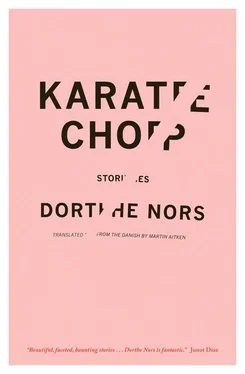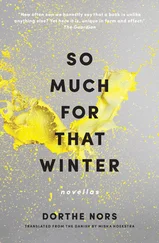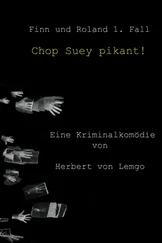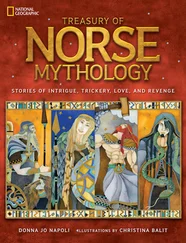Dorthe Nors - Karate Chop - Stories
Здесь есть возможность читать онлайн «Dorthe Nors - Karate Chop - Stories» весь текст электронной книги совершенно бесплатно (целиком полную версию без сокращений). В некоторых случаях можно слушать аудио, скачать через торрент в формате fb2 и присутствует краткое содержание. Год выпуска: 2014, ISBN: 2014, Издательство: Graywolf Press, Жанр: Современная проза, на английском языке. Описание произведения, (предисловие) а так же отзывы посетителей доступны на портале библиотеки ЛибКат.
- Название:Karate Chop: Stories
- Автор:
- Издательство:Graywolf Press
- Жанр:
- Год:2014
- ISBN:9781555970857
- Рейтинг книги:5 / 5. Голосов: 1
-
Избранное:Добавить в избранное
- Отзывы:
-
Ваша оценка:
- 100
- 1
- 2
- 3
- 4
- 5
Karate Chop: Stories: краткое содержание, описание и аннотация
Предлагаем к чтению аннотацию, описание, краткое содержание или предисловие (зависит от того, что написал сам автор книги «Karate Chop: Stories»). Если вы не нашли необходимую информацию о книге — напишите в комментариях, мы постараемся отыскать её.
A Public Space
Karate Chop
Karate Chop: Stories — читать онлайн бесплатно полную книгу (весь текст) целиком
Ниже представлен текст книги, разбитый по страницам. Система сохранения места последней прочитанной страницы, позволяет с удобством читать онлайн бесплатно книгу «Karate Chop: Stories», без необходимости каждый раз заново искать на чём Вы остановились. Поставьте закладку, и сможете в любой момент перейти на страницу, на которой закончили чтение.
Интервал:
Закладка:
There was nothing secretive about it. She was in love with someone, and while it was going on she thought about the good that had happened and the good that was going to happen. The noise of traffic on Søndre Fasanvej and Roskildevej remained a distant hum as she stole names for the child from the gravestones, and it felt nice, the same way it felt nice to let her thoughts sink into the earth where one day they themselves would lie, white through to the bone and tangled up in each other while the world carried on above them. That was okay, she thought. That kind of death was a good thing, and she would tell him that when he came, and she would tell the child when it was old enough, and perhaps a particularly distraught girlfriend one day. Until then she would keep it to herself, frequent the cemeteries, waiting and occasionally squatting down to see the cats stretch their necks toward the water.
THE WADDEN SEA
WHEN I THINK BACK ON FANØ, IT’S MOSTLY OF THE WADDEN SEA and the many shipmaster cottages. In the springtime the oyster-catcher would fly low over the thatched roofs, and I would go down to the tide pole to see how high above my head the water would have come if I’d been there in 1852. Sønderho, where I lived, was beautiful, even if they did call it the World’s End. There were many artists and musicians living in that little community. There were rich people too, though I didn’t know any of them, and then there were the locals and the town alcoholics. Like rooks, they tended to attract each other so that certain parts of the town were clusters of people with indistinct pronunciation and chinking shopping bags. Those are the kinds of things I remember, and also the multiallergic woman riding around the little lanes and unpaved roads on that wheelchair- cum -scooter of hers. Rumor had it she could predict people’s futures, and she wore a mask over her face. From the mask a tube went down to a machine that provided her with oxygen and at the same time filtered impurities from the air. She looked like a UFO that had landed on Earth and had found a way of getting around. Like a lot of other people in Sønderho, she was from Copenhagen. She had moved to Sønderho because the area’s sparse vegetation made the air purer, and because it’s good for the sick that the Wadden Sea is like one big, moist lung.
It was because of Sønderho’s genuine feel, its unspoiled surroundings, and the healthy outdoor life that we moved there. My mother was an actress and had worked a few jobs before being struck by a kind of depression that put a stop to everything. We lived in a two-room apartment in Nørrebro, just the two of us, and it was hard for me to cope, especially on the weekends. I persuaded Mom to visit the doctor and he gave her some pills that didn’t help. It was a lady with long, flowing robes who convinced Mom that Sønderho was a good place to work on her depression, or fear of life , as they decided to call it. Mom was becoming more reliant on her medication. She needed deliverance so she canceled the lease on the apartment. We had to get away from everything artificial. Copenhagen was one big fabrication, she said. She was going to find herself, and I went with her.
She rented a house in Sønderho and hoped the clean air might help her get off the medication that fear of life was craving. And she actually did start feeling a whole lot better quite quickly and went around the sparsely furnished house teaching me to say the words pristine, Frisian , and Netherlandic. Shortly after, she enrolled me in the school and herself in the local citizens’ association. Things were working out, and I would go running around the narrow lanes in town, looking in the windows with their porcelain dogs that sat looking out. Or else I would hide behind the garden fences. On Sundays we ate stewed apples with macaroons and whipped cream at the neighbor’s. Mom found friends, and at the local inn she became smitten with folk dance and the story about lacing the coffee with Brøndums Snaps because Rød Ålborg was for mainlanders.
And that was how fear of life after only a short time managed to get on the train from Copenhagen to Esbjerg. It turned out able to sail on the ferry too, and then it got on the bus for Sønderho and rode the nine miles from the ferry to the World’s End. Someone must have given it the address, because it came right to our house and knocked on the door, and it was the kind of visitor who puts a foot in the door, barges in, and refuses to leave. It crawled into bed with my mother and went to the store for new supplies each day and then shut itself in and piled itself up in the shed so that after a few months I had to call my grandmother.
I could tell Grandma was shaken up standing there amid all that medication out in the shed. She asked me how I could get my bike out without upsetting everything. I could tell she knew fear of life, and I could tell she knew it was a kind of fear that took in the whole of people’s lives and could make them forsaken wherever in the world. She was on the verge of crying, but she couldn’t, because it was my turn now to be small, so instead she stayed with us for a month. While Grandma was with us, she sat with my mother a lot and talked with her about the future and how we had to have one, and she walked me to school and sewed new covers for the chairs in the living room. After a while she got Mom eating and pulled me aside in the kitchen and said all things would pass in time.
She was right about all things passing in time, because Mom got better, so Grandma went home again. I could have gone with her, but I wouldn’t, because for one thing, Mom was trying to get into some good daily habits, and for another, she was having notions that the Wadden Sea had healing power. Anything that came into contact with the Wadden Sea was connected to that power. The notion made her get up early in the mornings, and it made her put on her gumboots and her overcoat. She would go down to the beach and look for fossilized sea urchins, and when she came home she would put them under her pillow. She found shells and made holes in them for turning them into mobiles. She twined dreamcatchers, fixed crab claws and dried seaweed to them, and hung them up over our beds. Everything had to be authentic, she said. It was artificiality that destroyed everything.
Almost every day she went down to the Wadden Sea and almost every day I went with her. We would walk along the unpaved road from Sønderho to the beach, and sometimes we met the multiallergic woman, whose breathing problems were especially bad in the wintertime. She would be sitting under a big rain cape, and Mom would be funny and say, Here comes the pyramid tent.
One particularly cold and heavy day in February we met her just like that on our way out to the Wadden Sea. She had the mask over her mouth and a pair of big orange glasses just above it, so it looked as if she was wearing a visor. Her wheelchair was a mass of tubes and gadgets that made her alien in her surroundings. I could hear machines wheezing and pulling, and I could see how her fingers controlled the switches and joysticks while Mom was talking. Mom was talking about how she wanted to learn to make lace and how she had discovered the coordinates of what she called the Wadden Sea Void. The multiallergic woman listened, and while Mom explained I looked at the woman’s peculiar craft, which I’d also seen could ride over dunes. When I looked up I saw I’d been caught in the woman’s gaze above her mouth mask. Her eyes sank into mine, and I couldn’t look away because of her eyes, which filled up the orange glasses completely. I can’t say why, but I think she knew. Sometimes you change things you remember when you know what happened later, but what happened was that Mom and I carried on our way.
Читать дальшеИнтервал:
Закладка:
Похожие книги на «Karate Chop: Stories»
Представляем Вашему вниманию похожие книги на «Karate Chop: Stories» списком для выбора. Мы отобрали схожую по названию и смыслу литературу в надежде предоставить читателям больше вариантов отыскать новые, интересные, ещё непрочитанные произведения.
Обсуждение, отзывы о книге «Karate Chop: Stories» и просто собственные мнения читателей. Оставьте ваши комментарии, напишите, что Вы думаете о произведении, его смысле или главных героях. Укажите что конкретно понравилось, а что нет, и почему Вы так считаете.












